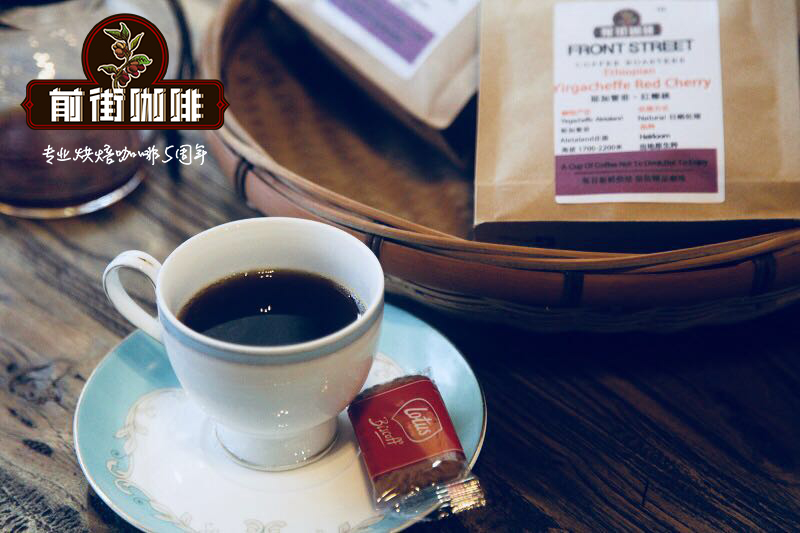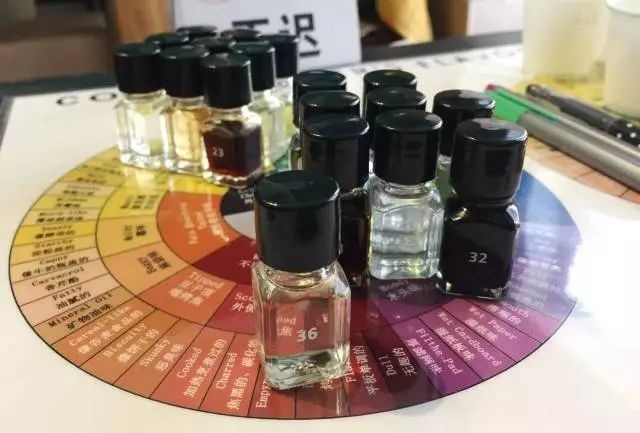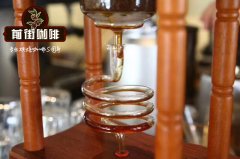How to make coffee tasters: 36 aromas need to be trained by "devil"

For professional baristas, please follow the coffee workshop (Wechat official account cafe_style)
How can you tell whether a cup of coffee is good or bad? Do professional coffee tasters need a keen sense of smell that others cannot match? Recently, the reporter visited the Yunnan International Coffee Trading Center in Pu'er City, Yunnan Province, to reveal how Q-Grader (Arabica Fine Coffee quality Classifier), one of the most stringent coffee sensory testing systems in the world, was refined.
In recent years, with the rapid development of the domestic coffee market, consumers begin to pay more attention to the quality of coffee, professional coffee tasters are also gradually known by people, and attract more and more coffee lovers to join this ranks. In order to become an Q-Grader, you need to take about 20 exams, including theory test, raw bean grading, cup test, smell bottle smell test, organic acid matching, baking degree identification, taste sense test, and so on.

How to make coffee tasters: 36 aromas need to be trained by "devil"
The teacher prepares "devil's water" made from a mixture of sour, salty and sweet solutions of different intensities for students. Students need to distinguish the taste and intensity of the drink.
On the day of the interview, the reporter saw at the Q-Grader training course of the Yunnan International Coffee Trading Center that the participants were doing cup testing training. They needed to repeatedly sip the coffee with a spoon, and then write down the taste, taste and flavor of the coffee. The day before, they had had a training in the sense of smell of incense bottles.
In order to successfully pass the Q-Grader exam, students need not only to learn coffee professional knowledge such as raw bean grading, but also to carry out all kinds of devil training in taste and smell. Jiang Shennan, a Q instructor in the preparation of the training course, told reporters that coffee tasting is similar to tasting fine wine and perfume, and olfactory training is the first step. Students are asked to memorize and identify 36 fragrance types, including lemon, potato, green pea, coffee flower, honey, caramel, vanilla, malt, tobacco and soil.
The cup test that the students are learning is the quantitative identification of the quality of coffee. It converts a rather subjective sensory experience into quantitative data to judge whether coffee is good or bad. The reporter saw at the scene that students need to rate each cup of coffee tested, including dry / wet aroma, flavor, acidity, alcohol thickness, consistency and so on.
"the emergence of a cup of boutique coffee is closely linked to every link of the industrial chain. Coffee growers, roasters, baristas and quality controllers all need to master cup testing skills that act as a connecting link between the preceding and the following, and learning Q-Grader is the beginning of mastering this skill. "Jiang Shennan said.
On the same day, after the cup test and fragrance training, the students ushered in the "devil water" training. The teacher prepares "devil's water" made from a mixture of sour, salty and sweet solutions of different intensities for students. Students need to try to distinguish the taste and intensity contained. Next, they will conduct organic acid pairing training to learn to identify acids with different properties, such as citric acid, malic acid, phosphoric acid and acetic acid.
"I practiced smelling incense and testing cups yesterday. Everyone drank at least 50 cups of coffee, and I couldn't sleep at all when I went back at night. Today's practice of "devil's water" makes my stomach uncomfortable again. Ye Ping, a local trainee from Pu'er, said that despite the hard training, her ability to appreciate and analyze coffee has made a qualitative leap.
The reporter learned that many students in the training course, like Ye Ping, are from local coffee growers. They hope that after learning, they can improve their coffee tasting ability so that they can better control the quality of coffee cultivation.
In addition, there are also many coffee lovers among the students. After nine days of intensive study and passing the exam, they will be certified as a graded appraiser of Arabica boutique coffee (Q-Grader).
For professional baristas, please follow the coffee workshop (Wechat official account cafe_style)
Important Notice :
前街咖啡 FrontStreet Coffee has moved to new addredd:
FrontStreet Coffee Address: 315,Donghua East Road,GuangZhou
Tel:020 38364473
- Prev

Wonderful Coffee record: wonderful combination of Egg and Coffee
Professional coffee knowledge exchange more coffee bean information Please follow the coffee workshop (Wechat official account cafe_style) people's travel is nothing more than going out of the original life situation and looking for freshness in other people's situations. There is no scenery in familiar places. Xu Song's "Lingguang on the Sea" talks about eggs and coffee, the first reaction of ordinary people must be Ma Ye, this is a dark dish. But...
- Next

Do you know all the petty bourgeois cafes on Tongfu Road?
For the exchange of professional baristas, please follow the coffee workshop (Wechat official account cafe_style) to write a different Tongfu Road food strategy. But because of laziness, the strategy has not been written for a year. (blame me) as a result, some stores with special features have been unable to hold up and have closed down, while some good stores have changed their owners and their products have changed their taste. Until recently, some new things have been discovered in Tongfu Road.
Related
- What brand of black coffee is the most authentic and delicious? what are the characteristics of the flavor of the authentic Rose Summer Black Coffee?
- Introduction to the principle and characteristics of the correct use of mocha pot A detailed course of mocha pot brewing coffee is described in five steps.
- Which is better, decaf or regular coffee? how is decaf made?
- How much is a bag of four cat coffee?
- How about four Cat Coffee or Nestle Coffee? why is it a cheap scam?
- Which is better, Yunnan four Cats Coffee or Nestle Coffee? How about cat coffee? is it a fake scam? why is it so cheap?
- How about Cat Coffee? what grade is a hoax? which instant coffee tastes better, four Cat Coffee, Nestle Coffee or G7 coffee?
- Process flow chart of coffee making-Starbucks coffee making process what coffee tastes good at Starbucks
- The top ten best coffee beans in the world Rose summer coffee or Tanzanian coffee tastes good
- Yunnan four cat coffee is good to drink?_four cat coffee is a big brand? four cat blue mountain coffee is fake?

